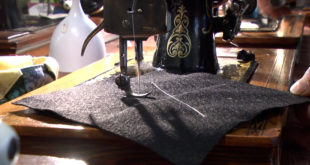Each year, during mosquito season, concerns arise about West Nile Virus (WNV). West Nile came into the spotlight in 2012 with a large multi-state outbreak involving over 5,700 reported U.S. cases, the largest on record since 2003 (outbreaks have been occurring since 1999). In 2016, case numbers were substantially smaller at 2,038. The virus has been detected in all states across the country except for Hawaii and Alaska.
As in previous years, WNV has been detected in the bird population of Michigan, including Houghton, Baraga, Keweenaw, Ontonagon and Gogebic Counties. When mosquitoes come in contact with infected birds, they too become infected and can transmit the virus to humans. On August 31, the state reported the first four human cases of WNV for 2017. There have been no human cases of WNV diagnosed in the Upper Peninsula so far this year.
Most people are infected with West Nile through mosquito bites, with only a few cases occurring through blood transfusion and organ transplantation. Dr. Frankovich, medical director for the Western Upper Peninsula Health Department notes that “Although there is much buzz about West Nile, in reality it is usually a very mild disease that occurs primarily between June and September. It is so mild that 80% of those who get bitten and infected will never even know they had an infection. Only 1 in 5 people will actually feel sick with fever and possibly headache, joint pain, vomiting, diarrhea or rash. And of these, only 1% will actually become seriously ill with neurologic symptoms due to infection in or around the brain (called meningitis or encephalitis).”
Because there is no vaccine to prevent infection with WNV and specific medication that treats it effectively, the public health message is prevention. Overall, prevention strategies center on limiting the number of mosquitoes and avoiding mosquito bites.
For the average homeowner recommendations center around elimination of standing water in places like planters, pool covers, pet water dishes, gutters and birdbaths. It is also important to plan on checking screens for tears and using air conditioning, if screens are not present. Other avoidance measures include:
- Avoid being in areas with mosquitoes between dusk and dawn when mosquitoes are most active
- Use light, long sleeved shirts and long pants if being out at those times is unavoidable
- Consider using hats with netting if working outside for extended periods
- Take a look at mosquito repellent options. A variety of types are available, some more effective than others. Products containing DEET, Picaridin, IR 3535 and some Oil of Lemon and para-methane-diol products can offer longer lasting protection according to the national Centers for Disease Control.
Some people have concerns about chemical repellents, particularly DEET. However, when used appropriately, the safety track record for these agents is actually very good. Complications have generally related to excessive application or use of a particular agent in an infant or young child for whom it was not intended (for example, oil of lemon is not recommended for children under 3 years of age). Follow label instructions and shower or wash after returning indoors. If sunscreen and insect repellents are both to be used, it is typically recommended to apply sunscreen first. Repellents typically do not require as frequent reapplication as sunscreen. Use of products combining DEET and sunscreen is not recommended.
According to Frankovich, “West Nile Virus is not likely to cause serious illness in our area residents but a small bit of extra precaution in mosquito avoidance can make illness even more unlikely.”
Western U.P. Health Department provides public health services to residents in Houghton, Keweenaw, Baraga, Ontonagon, and Gogebic counties from its offices in Hancock, L’Anse, Ontonagon and Bessemer.
 Keweenaw Report Your Source for Local News and Sports
Keweenaw Report Your Source for Local News and Sports





